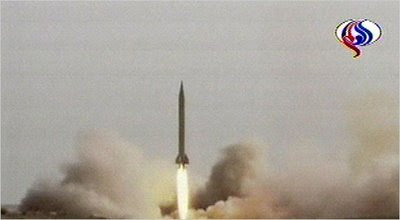This article appeared on MSNBC.com
Middle East trip an eye-opener for Obama
Opinion: Reality of problems in Israel, Iraq now more apparent to candidate
COMMENTARY
By Lt. Col. Rick Francona
Military analyst - MSNBC Barack Obama’s recent trip to the Middle East was a learning experience for him. Often criticized for a lack of national security and foreign policy experience, he was exposed to the vexing issues facing the U.S. in the world’s most volatile and strategically important region.
Barack Obama’s recent trip to the Middle East was a learning experience for him. Often criticized for a lack of national security and foreign policy experience, he was exposed to the vexing issues facing the U.S. in the world’s most volatile and strategically important region.
In Iraq, he was able to get a glimpse of an improving situation and meet with some of the American troops responsible for that turn-around. Despite this, he still continues to use the phrase “end the war” as opposed to what the troops have asked for: An opportunity to “win” the war. Ironically, thanks to their efforts, his arbitrary timeline of withdrawing American combat forces within 16 months of taking office is probably achievable.
It was in Israel that he probably got his biggest dose of Middle East reality. Speaking to the Israelis, he reiterated his stance that Jerusalem is the undivided capital of Israel. Of course, Palestinians of all stripes bristled at this since they demand that Jerusalem, or a part of it, be recognized as the capital of the future state of Palestine. The presidential candidate fell into the same trap as many American politicians who fail to realize the extreme sensitivity of the Jerusalem issue, and used the same avoidance tactic by declaring it a “final status” issue. In other words, “I don’t have a solution and don’t want to discuss it anymore.”
Probably no less educational was the visit to the Israeli town of Sderot. Sderot is located on the border with the Gaza Strip and is subjected almost daily to rocket and mortar attacks at the hands of Iranian supported terrorist groups. The 6000 rocket casings launched over the years provide a powerful visual aid to the reality of living in Israel.
Face-to-face with Israel and Iran's conflict
The Israelis have claimed for years that Iranian uranium enrichment efforts are the first steps toward the development of a nuclear weapon, a weapon they believe may be used on the Jewish state. Israeli analysts postulate that three nuclear weapons detonated over the small coastal strip from Tel Aviv to Haifa could effectively destroy their country. They define the Iranian program as an “existential threat.” The senator, in his public remarks, appears to agree with this assessment.
Armed with this newfound knowledge and supposedly a great appreciation for the realities of the situation in the region, it will be interesting to watch the development of the candidate’s policy toward Iran. Will he still be willing to sit down with Iranian president Mahmoud Ahmadinejad without preconditions? How far will he be willing to go to insure that Iran does not develop a nuclear weapon? When and if the Israelis decide that the rest of the world will not solve the Iranian issue and attempt to solve it themselves, will the senator be in their corner?
At the end of the day, the lesson is clear. The real issue in the region facing the next president is Iran. Stopping both Iran’s quest for nuclear weapons and its support for the three major terrorist organizations in the Middle East should be critical American foreign policy goals.




